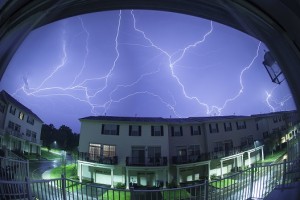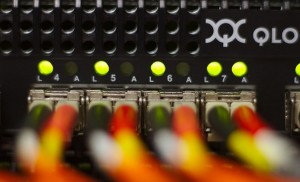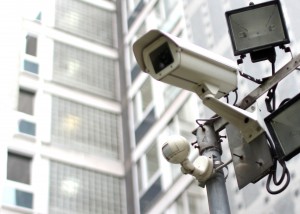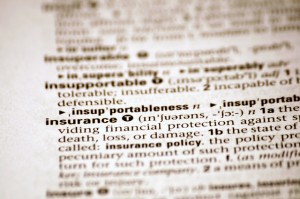 House fires. Nobody wants to think about them, but they are an unfortunate reality in our imperfect world. While a house fire can be unpredictable there are precautionary measures you can take to avoid them. Being prepared is half the battle, but knowing what to do in the event of a fire is equally important.
House fires. Nobody wants to think about them, but they are an unfortunate reality in our imperfect world. While a house fire can be unpredictable there are precautionary measures you can take to avoid them. Being prepared is half the battle, but knowing what to do in the event of a fire is equally important.
Part of home fire safety is having the proper equipment and warning devices. This means having operating smoke detectors, fire extinguishers, a fire alarm, and sometimes a sprinkler system. Most single family homes are not required by law to have a sprinkler or fire suppression system, but that may not last as the NFPA (National Fire Protection Association) is currently pushing for sprinkler legislation across the United States. As a leading expert in the security system industry our experts at Perfect Connections, Inc. realize having a truly comprehensive home security system means including fire detection equipment that is linked to an alarm system. We have been providing home security systems throughout northern and central New Jersey for over 25 years. Our team understands that security is not solely about preventing break-ins, it’s about protecting lives.
Being Prepared
According to the NFPA, in 2015, U.S. fire departments responded to an estimated 365,500 home structure fires. These fires caused 2,560 deaths, 11,075 civilian injuries, and $7 billion in direct damage. The main culprits of these fires were cooking followed by heating equipment and smoking. Of reported home fire related deaths, 60% of the homes either didn’t have smoke detectors or had non-working detectors. This is a problem – what good is a detector if it’s not working or been removed?
The best way to manage a household fire is be prepared for one. Being prepared includes having the proper warning system, up to date fire extinguishers, and most importantly an escape plan. Having an escape plan that everyone knows and has practiced will help ensure a safer and quicker exit in the event of a fire. Every house should have working smoke detectors throughout each floor of the home and they should be tested regularly. Smoke detectors can be even more effective if they are tied into your homes security system. If you have a home security system you likely have a monitoring service that responds in the event of an emergency. In the event of a fire, detectors that are tied into an alarm system will trigger the alarm and if the alarm is not deactivated by the owner, the monitoring service will be notified automatically. The monitoring service will try to contact the house and if no one answers after a given amount of time they will dispatch local emergency crews. This type of system ensures a quicker response from local authorities and saves you and your family precious time needed to escape.
Fire Types
Understanding the different types of house fires can help you prevent or know how to extinguish them. One of the most common causes of house fires is from cooking related incidents. According to the NFPA two out of every five home fires started in the kitchen. In a way this makes a lot of sense. Think about it, kitchens are where you cook with high heat, ovens, gas or electric ranges, grease, and flammable materials. It is of the utmost importance to be vigilant of what is going on in your kitchen. If you have pots on the stove, do not leave them unattended the same for items in the oven. Never leave flammable or combustible materials where they can be exposed to flames or high heat.
Electrical fires are another leading cause of house fires. Homes with electrical heating need to be conscious of what materials are up against or close to heaters, all it takes is one dangling curtain to catch fire. This is especially true for people who use space heaters. It’s tempting to bring that space heater right up to your bed on those cold winter nights, but they need to be kept a safe distance, which is about 3 feet, from anything combustible and that includes bed sheets. Space heaters should always be unplugged when not in use to avoid any electrical malfunctions and they should never be left on overnight. Other culprits of electrical fires include dryers, washing machines, water heaters, air conditioning machines, and ranges.
Fires related to smoking incidents are another major cause of injury and fire related deaths in the United States. Although the amount of people who smoke in the United States has decreased in the past decade the fact remains between 2007 and 2011 smoking materials were responsible for approximately 17,900 house fires. During this time period 580 deaths, 1,280 injuries, and $509 million in property damage per year was attributed to smoking related fires. Many of these fires included falling asleep as a factor. It’s devastating that such disaster has taken place when this type of fire is completely preventable by not smoking.
While you can’t always predict or prevent house fires from occurring you can be prepared for them. And even though the first thing you should always do in the event of a fire is call 911 here’s a helpful link that describes how to extinguish different types of house fires Different Ways To Extinguish Different Fires. Having a comprehensive security system that includes a monitored fire alarm and connected smoke detectors can significantly decrease the damaging effects of a house fire. It can save you time, money, and most importantly lives. Our team at Perfect Connections, Inc. has been providing comprehensive security systems to homes throughout northern and central New Jersey since 1992. We want to help you connect and protect what matters most.
If you own a home or run a business in Central or Northern New Jersey and would like information on any of the topics discussed above, please call 800-369-3962 or simply CLICK HERE.
Image Credit: Image by Ada Be-Flickr-Creative Commons

 We all know the weather is unpredictable no matter how many radars or meteorologists tell us otherwise. Mother Nature is impulsive and she strikes at will. A common and sometimes unpleasant result of severe weather is power outages. During a thunderstorm outages may last a couple of hours but extreme weather conditions have been known to leave civilians without power for weeks at a time. The
We all know the weather is unpredictable no matter how many radars or meteorologists tell us otherwise. Mother Nature is impulsive and she strikes at will. A common and sometimes unpleasant result of severe weather is power outages. During a thunderstorm outages may last a couple of hours but extreme weather conditions have been known to leave civilians without power for weeks at a time. The  s a vital role in any comprehensive security system. It helps authorities catch criminals and provides helpful insight into your business operations by collecting and analyzing data on a daily basis. Where and how is all of this visual and analytical data being “collected?” That is the ever pressing question for system integrators and end-users alike. Storing surveillance data can be as important to the efficiency of your security system as having the surveillance equipment itself. We are catapulting ourselves into the future with the constant evolution of technology in all aspects of life including security system components, and surveillance storage solutions are no exception, but not all are created equal.
s a vital role in any comprehensive security system. It helps authorities catch criminals and provides helpful insight into your business operations by collecting and analyzing data on a daily basis. Where and how is all of this visual and analytical data being “collected?” That is the ever pressing question for system integrators and end-users alike. Storing surveillance data can be as important to the efficiency of your security system as having the surveillance equipment itself. We are catapulting ourselves into the future with the constant evolution of technology in all aspects of life including security system components, and surveillance storage solutions are no exception, but not all are created equal. When you’re a homeowner one of your top priorities is ensuring the safety of your home. Your home is what protects you and your family. Nobody wants to deal with a home break-in but they are a sad reality in our everyday lives. Fortunately there are many ways you can safeguard your home from such devastation. The best way to deter crime is to be prepared for it. If you want to prevent a home invasion you must first understand when and how burglars are likely to attempt them. At
When you’re a homeowner one of your top priorities is ensuring the safety of your home. Your home is what protects you and your family. Nobody wants to deal with a home break-in but they are a sad reality in our everyday lives. Fortunately there are many ways you can safeguard your home from such devastation. The best way to deter crime is to be prepared for it. If you want to prevent a home invasion you must first understand when and how burglars are likely to attempt them. At 



 Just how much can you save by installing a security system? The answer to this question varies, it all depends on your insurance provider and the state you reside in. Although each company has a different policy, the average savings can be up to 20% (
Just how much can you save by installing a security system? The answer to this question varies, it all depends on your insurance provider and the state you reside in. Although each company has a different policy, the average savings can be up to 20% ( Home renovation is an exciting and fulfilling prospect for many homeowners. Whether you’re adding on or adjusting an existing space, it’s imperative to make sure your home is protected during the process. While renovating your home is rewarding for you and your family, you don’t want it to be a “rewarding” process for would-be thieves and criminals. Our experts here at
Home renovation is an exciting and fulfilling prospect for many homeowners. Whether you’re adding on or adjusting an existing space, it’s imperative to make sure your home is protected during the process. While renovating your home is rewarding for you and your family, you don’t want it to be a “rewarding” process for would-be thieves and criminals. Our experts here at 